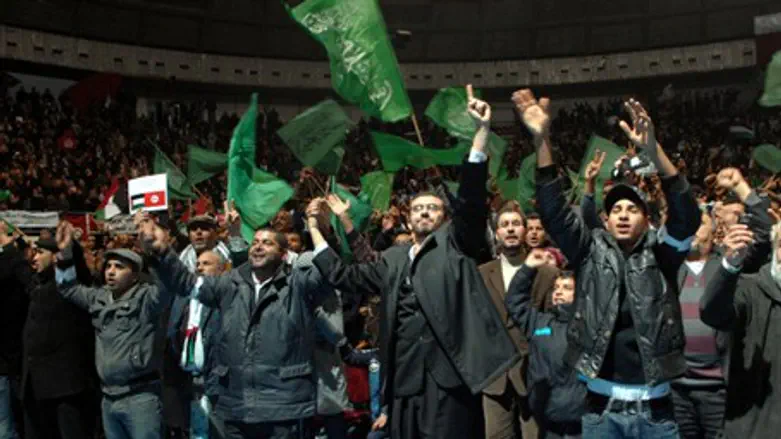
Tunisian activists say they will attempt to replicate Egypt’s second revolution with one of their own, but it is unlikely they will succeed.
Leaders of the little-known Tunisian Tamarud (rebels) are hoping to topple the country’s Islamist Ennahda-led government. The movement says it plans to call for mass protests after gathering some 200,000 signatures of those who oppose the regime, which they accuse of trying to Islamize the North African nation.
“Tunisia’s young are following in the footsteps of young Egyptians, “ Tamarud spokesman Mohamed Bennour told reporters on Wednesday following the overthrow of Egyptian President Mohamed Morsi. “We are not satisfied with what is happening in the country, from an attack on freedoms to a bad economic and social situation.”
However, the ruling Islamist Ennahda party in March allowed a coalition government to share power in Tunisia, unlike Muslim Brotherhood-backed President Morsi in Egypt. The new coalition government, which includes several independent government ministers, has defused a potential powder keg in Tunisia, appeasing secular parties and quieting street protests.
Moreover, Shari’a (Islamic law) is not mentioned in the country’s new Constitution, in accordance with demands by secular lawmakers – a point that de-fangs the contentions by “dissatisfied” activists complaining of “attacks on freedom.”
Security forces and hardline Islamists fought street battles in Tunis in May, with one protester killed and 15 policemen wounded, AFP reported. The clashes took place after local authorities banned extremist Salafists from staging their annual congress. The confrontations infuriated moderate Islamist Prime Minister Ali Larayedh, who for the first time linked the Salafist Ansar al-Sharia group, which is considered close to Al Qaeda, to "terrorism".
"Ansar al-Sharia is an illegal organization which defies and provokes state authority," Larayedh told Tunisian state television during a visit to Qatar. "It has ties to and is involved in terrorism," he said. The fighting erupted when Ansar al-Sharia (Partisans of Islamic Law) urged its followers to gather in defiance of a ban in the central city of Kairouan. Salafists follow an extreme form of Sunni Islam, and Ansar al-Sharia, whose fugitive leader fought with Al Qaeda in Afghanistan, does not recognize the authority of the Tunisian state.
During a meeting in 2011 with the country’s Grand Rabbi Haim Bittan, then-newly elected President Moncef Marzouki said that Tunisia’s Jews are full-fledged citizens and those who had left the country were welcome to return. At present,Tunisia has a Jewish population of 1,500, down from 100,000 who had lived in the country in the 1960s, and the majority of whom left following the 1967 Six Day War.
Most of the remainingTunisian Jews now live on the resort island of Djerba, near the country’s border with Libya. Djerba was once called the Island of Kohanim because so many Jewish families who lived there could trace their lineage to Aharon the first High Priest in the Bible and who was the brother of Moses. The 2,000 year old El Ghriba synagogue,-- the oldest in Africa and one of the oldest in the world -- is located on the island.